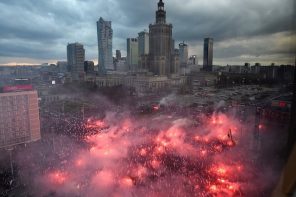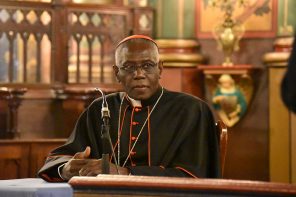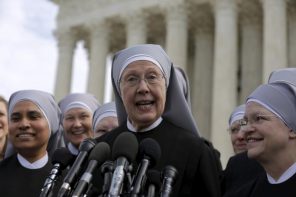Earlier this year, the diocese of Scranton—led by Bishop Joseph F Martino—prohibited the Scranton Diocese Association of Catholic Teachers from forming. In lieu of a union, the diocese created an employee relations program. In their dismay, educators from Scranton appealed to the Vatican Congregation for Catholic Education. If the Vatican had agreed with the teachers’ petition, the decision of the diocese could have been overturned. However, that was not the case.
On September 24, the Vatican sent a letter to the bishop stating that he was not violating civil or Church law by refusing to recognize the teachers’ union. While the bishop likely received this letter weeks ago, the union has not yet received official notice.
Nonetheless, this week Bishop Martino and the Diocese of Scranton have issued a statement and are hailing this as a victory stating, “[The diocese] is gratified that the Holy See has affirmed the right of Bishop Martino to make prudential judgments about the most effective means to operate the Catholic schools according to current circumstances in his diocese.”
The statement also claimed that this decision “refutes what some people have erroneously charged: that Bishop Martino was violating Church teaching or social doctrine regarding labor unions.”
Really?
The right of workers is indisputably one of the foundations of Catholic Social Teaching. In fact, the United States Conference of Catholic Bishops named the “Dignity of Work and the Rights of Workers” as one of the seven key themes of Catholic Social Teaching. Rerum Novarum—the papal encyclical widely considered to have initiated what would become Catholic Social Teaching—includes as one of its central themes “the right to organize” The document, written by Pope Leo XIII in the late 1800s, states, “It is indisputable that on grounds of reason alone such associations, being perfectly blameless in their objects, possess the sanction of the law of nature… As regards many of these there is no need at present to inquire whence they spring, what are their objects, or what the means they imply.”
In short, the Catholic Church—specifically the U.S. Catholic Church—has a long history of standing up for the rights of workers, including the formation of labor unions. It is doubtful that if Bishop Martino had decided that the Catholic hospitals in Scranton could prescribe birth control or perform abortions or that priests in the diocese could marry same-sex couples, the Vatican would have allowed the bishop such autonomy.
The Catholic educators in Scranton are not backing down. They plan to appeal to the highest Vatican court—the Supreme Tribunal of the Apostolic Signatura. However, it is doubtful that they will see much success with Archbishop Burke heading that court. The teachers may have more success in their endeavor to push through Pennsylvania House Bill 2626 which would allow lay employees at religious schools to decide by majority vote whether they wanted to be represented by a union.




